News
EXPLOSIVE INTERVIEW; Kagame rejects Tshisekedi conditions, says Ndayishimiye lied to him
Published
1 year agoon
By
Ugdiplomat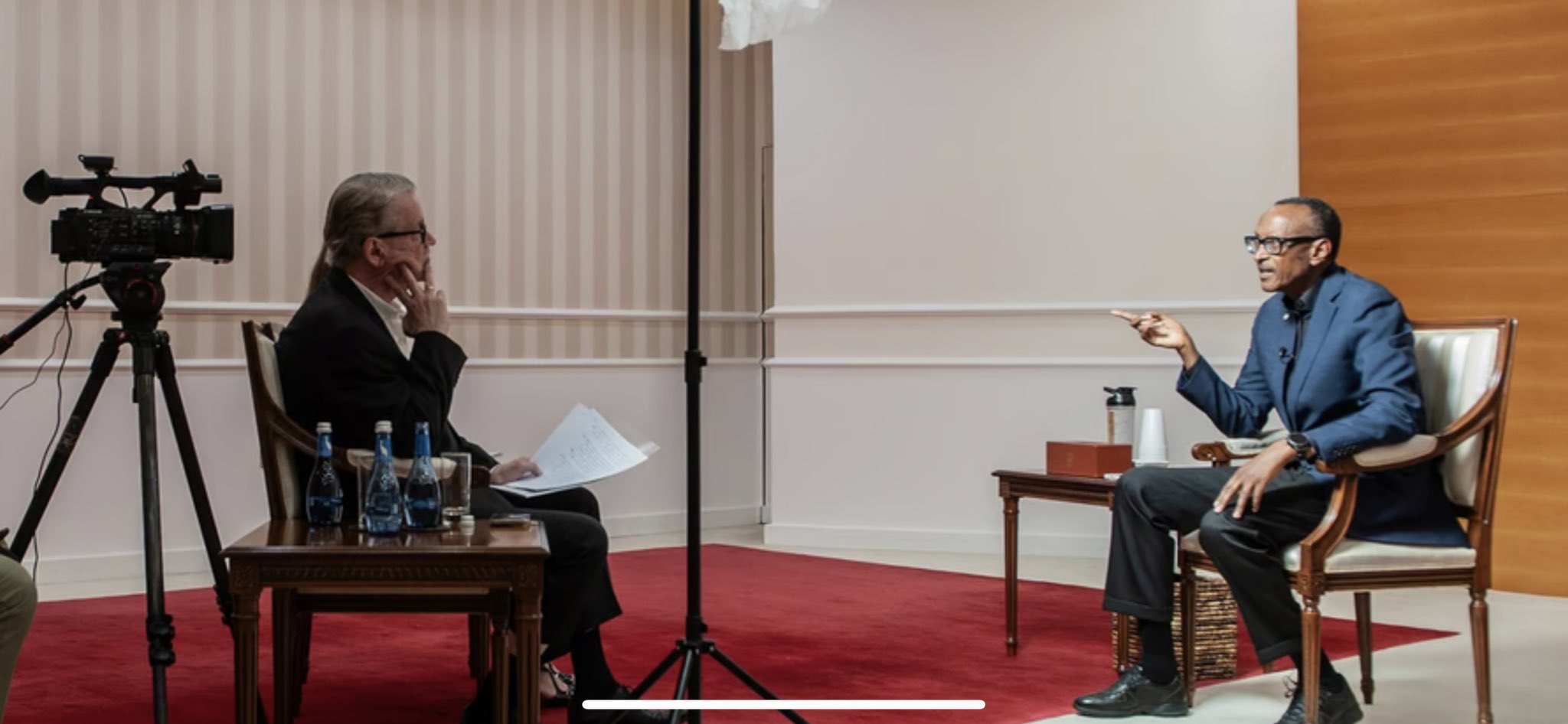
Rwandan President Paul Kagame gave an interview to François Soudan, Managing Editor of Jeune Afrique, a leading news weekly based in Paris. In the interview Kagame spoke on Rwanda’s tense relations with her neighbours, Democratic Republic of Congo and Burundi.
He accused Burundi’s President Evariste Ndayishimiye of telling him lies about deploying in DRC, and said the latter’s President Felix Tshisekedi is wrong to set terms and conditions for a meeting with him
Kagame; Tshisekedi has been able to manipulate individual leaders, countries, now regions, and almost bringing a misunderstanding within and among regions, because he was playing SADC against East Africa. So, why don’t we therefore find a way of just talking about it, and not allowing Tshisekedi to dictate the terms of what must happen, because he is even wrong, we know he is wrong.
François; President Tshisekedi said he was ready to meet you on two conditions. Withdrawal of Rwandese troops from DRC, he said, and the containment of the M23. Are you willing to accept those conditions? (1:00)
Kagame; You start by giving conditions. It’s the wrong way to go about it, but I think sometimes people are playing to the gallery, they are posturing in the media, and if you talk about the preconditions, that would suggest that maybe we come up with conditions as well.
I won’t meet President Tshisekedi until he reverses his statements about attacking Rwanda and carrying out regime change in Rwanda, as he has publicly talked about. I would also say that unless FDLR is removed from Congo, I’m not going to talk to President Thisekedi. So, this does not serve the purpose of bringing about peace.
François; Do you recognise the presence of Rwandan troops in eastern Congo?
Kagame; Why, in any case, would Rwanda be involved, if it were? Meaning, I’m asking, those who are accusing Rwanda of being involved in DRC, or the forces of Rwanda being involved in DRC, I’m asking the same people, why do you think Rwanda would be involved in DRC? Would it be for fun? Is it for fun to put our forces on the ground in any situation, this time in eastern DRC? And I’m saying this so that they don’t escape the responsibility they have for why Rwandan forces would be in DRC, if the forces were there. You see what I mean? I don’t want them to achieve isolating or desegregating the problem and simply sticking to one of the forces of Rwanda, possibly in DRC. Because that’s what they would want to achieve.
One part is internal, the other part is from outside. The internal one being the M23. These Congolese, by the way, sometimes people talk about M23 as these fighters, whatever name you call them, whatever you do against them. They have 100,000 people here as refugees in Rwanda. Some of them have been here for the last 23 years. Others less, but including the 15,000 or so who have come recently, have been crossing the border almost on a daily basis. We have hundreds of families or dozens of families crossing every day, being targeted and uprooted from eastern DRC. 15,000 have happened in this fighting. Refugees come in here.
Now, if you may call the M23 terrorists or this, or want to sanction them, are you sanctioning 100,000 people that are here as refugees? That means you are not addressing the problem at all.
François; Now, the M23 is on the gates of Goma. Are you calling on them, on this movement, to withdraw again?
Kagame; When you don’t look at the root causes, and you don’t really look at the big picture of where you want to be, and that is about peace, you want peace in the end, how can you have peace by just addressing one element of hundreds of things that need to be considered? There are regional efforts. There is the Rwanda process. There is the Nairobi process. And fairly so, they are doing a good job.
But I would have wished that one, maybe we bring closer these processes instead of running them separately, or sometimes in different directions. Tshisekedi has been able to manipulate individual leaders, countries, now regions, and almost bringing a misunderstanding within and among regions. Because he was playing SADC against East Africa.
So why don’t we therefore find a way of just talking about it, and not allowing Tshisekedi to dictate the terms of what must happen, because he is even wrong, we know he is wrong.
François; But Mr President, are you really taking seriously the threats Mr Tshisekedi made during his election campaign against Rwanda, threats to strike Kigali and so on? Are you afraid of his drones?
Kagame; Why wouldn’t I take it seriously? I think he even has the incapacity to understand the implications of what he is saying as the leader of the country. So for me, that in itself is a problem. It’s a very serious problem I need to prepare for and take care of. That means one night he can wake up and do something that you never thought normal people would do.
François; Mr President, you spoke of hate speeches and so on. Do you think that you, that your government, that your people, the Rwandan people, have a particular duty of solidarity with, I mean, the M23, which is a Congolese rebel group, yes, Congolese, made up of Congolese Tutsis, and more generally, a duty of solidarity with the community of Congolese Tutsi, which you say is a victim of ethnic cleansing and hate speeches?
Kagame; Whether it is in the Congo or anywhere else, when there is an oppression, when there is injustice, when something, a government is doing wrong, or any politics anywhere playing out to that extreme and is wrong, why wouldn’t, anyone, anyone, anywhere, why don’t they, why wouldn’t they have that feeling? The FDLR has been involved in mining in places they have controlled over the years. It’s not Rwanda, but it is this Rwandans that actually we are fighting, and that DRC government has embraced and is using them in their own wars.
François; Another country, another problem, Mr. President, Burundi. How do you explain this deterioration of your relationships?
Kagame; When we detected through intelligence, we learned that Burundi was actually preparing and sending troops to Goma and the north, the eastern Congo, to fight on the side of the eastern African regional force. I called by phone. I talked to, I asked to talk to President Ndayishimiye and I did, and I asked him, I said, President, I have heard that you are sending a force, another force other than that one, the eastern African regional force, to fight on behalf of the government of Kinshasa.
I said, that is in contradiction with why the eastern African regional force was formed that you are participating in, so you are going to participate in something else. And I told him, I said, this is dangerous, and you understand the implication, you are actually threatening us with your presence in support of FDLR near our border. I said, he swore to me that that’s not true.
He said, no, no, no, he said, whoever told me must have told me lies, and I said, oh, I’m happy to be wrong. If I’m wrong, well and good, I’m really happy to hear that. But two weeks after, he was gone. Or even less than two weeks. So you can see, he even told me lies. I think of primitivity. We still have primitive politics going on, based on ethnic. And this is exactly what brings together Tshisekedi, Ndayishimiye, and FDLR.
François; Do you really think that the current crisis in eastern Congo can escalate to the point of becoming an existential threat for Rwanda?
Kagame; The hate speech, the preaching of this hate ideology which leads to genocide, and which is unfolding in eastern Congo by other groups other than just FDLR, it’s no longer an issue of numbers. If it is numbers, they have numbers. Maybe when you talk about a few numbers of FDLR, that’s one thing, but now there are FDLR plus many others in the environment in Congo, including the leaders. If a country’s president or leadership is actually going to embrace this hate ideology, you think that’s a small thing? How does a combination of these factors not appear existential to us?
You may like
-
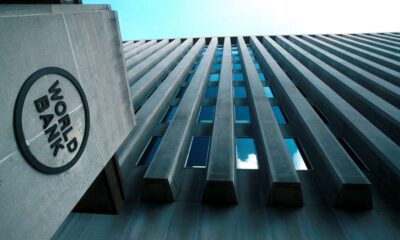

World Bank Coils Tail, Ends Loans Ban On Uganda Over Gay Law
-
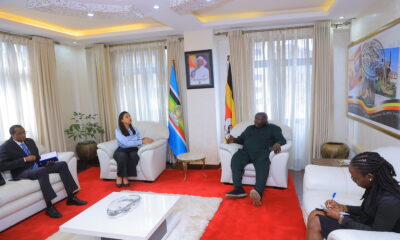

Venezuelan Envoy Pledges Closer Ties In Meeting With Minister Oryem
-
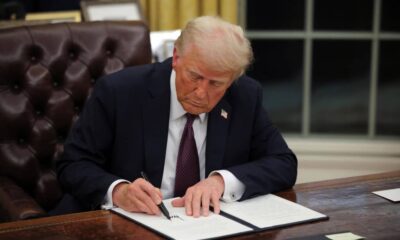

AU Condemns U.S. Travel Ban Affecting African Nations
-
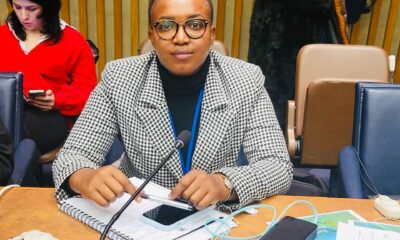

Kiconco Brenda Launches Bid for NRM Youth League Boss: “This Is Our Voice”
-


Uganda And Russia Deepen Military Ties In Strategic Partnership
-


UAE’s Aster DM Healthcare to Donate Hitech Mobile Medical Clinic to Uganda
